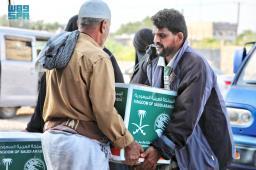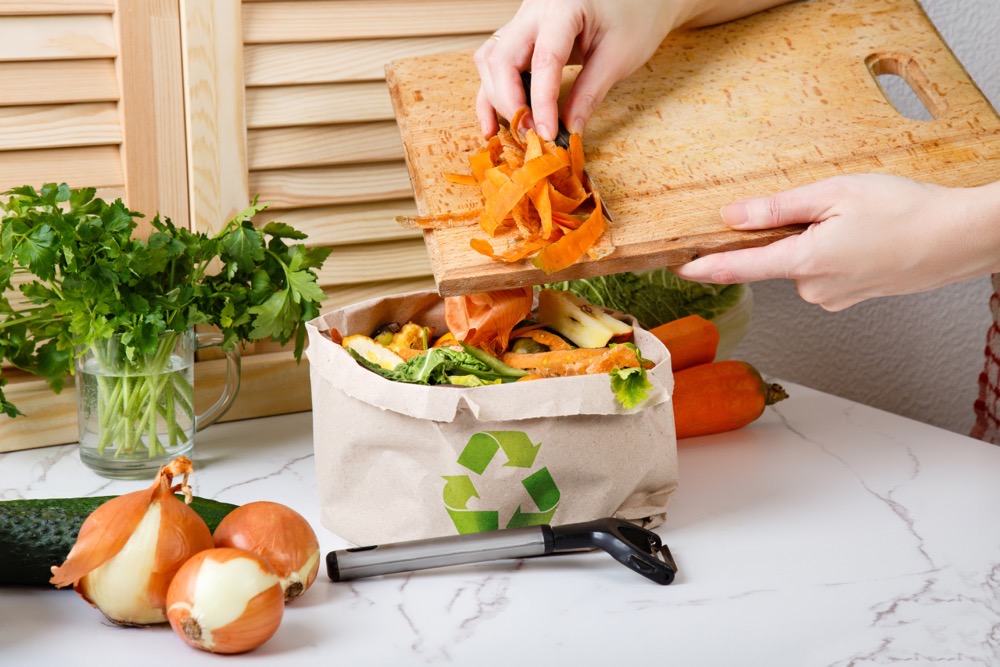JEDDAH: The Historic Jeddah Program, in collaboration with the Heritage Commission, has made a groundbreaking announcement about the discovery of about 25,000 remnants of artifacts at four historic sites.
The artifacts, dating back to the first and second centuries of the Hijri calendar, shed light on the rich history of Jeddah and its significance in the broader context of trade, architecture, and cultural exchange.
This announcement comes as part of the archaeological project overseen by the Historic Jeddah Program, which includes sites such as the Uthman bin Affan Mosque, the Al-Shuna site, parts of the eastern trench, and the northern wall.
The Uthman bin Affan Mosque, which is considered one of the oldest in Jeddah, has unveiled artifacts dating back to the ninth to 10th centuries.
Otto Bagi, senior project manager at the mosque, explained that the site’s significance was affirmed by the misalignment with the Kaaba and the discovery of an octagonal pillar dating back to the 19th century. These findings strengthen the belief in the mosque’s importance.
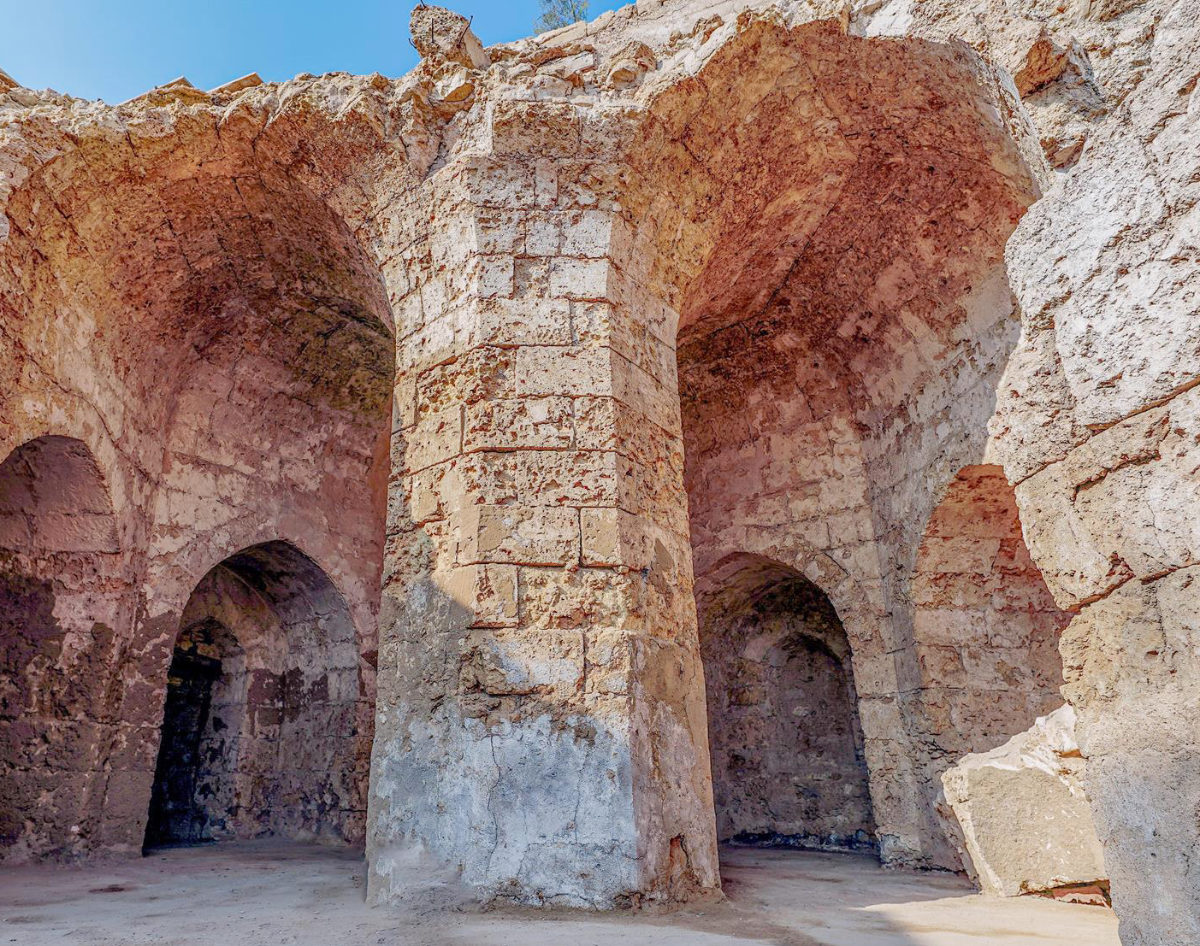
The Historic Jeddah Program, in collaboration with the Heritage Commission, ensures that archaeological resources are documented, registered, and preserved. (SPA)
Bagi told Arab News about the secrets behind the Uthman bin Affan Mosque.
He said: “Why do we assert that this mosque may indeed be one of the oldest, if not the oldest, in existence? According to local tradition, it is considered one of the oldest, if not the oldest.
“We began our work here three years ago, and we have some indications that this local tradition might actually be true. There is archaeological evidence supporting the claim that this mosque dates back to the ninth to 10th centuries at the moment.
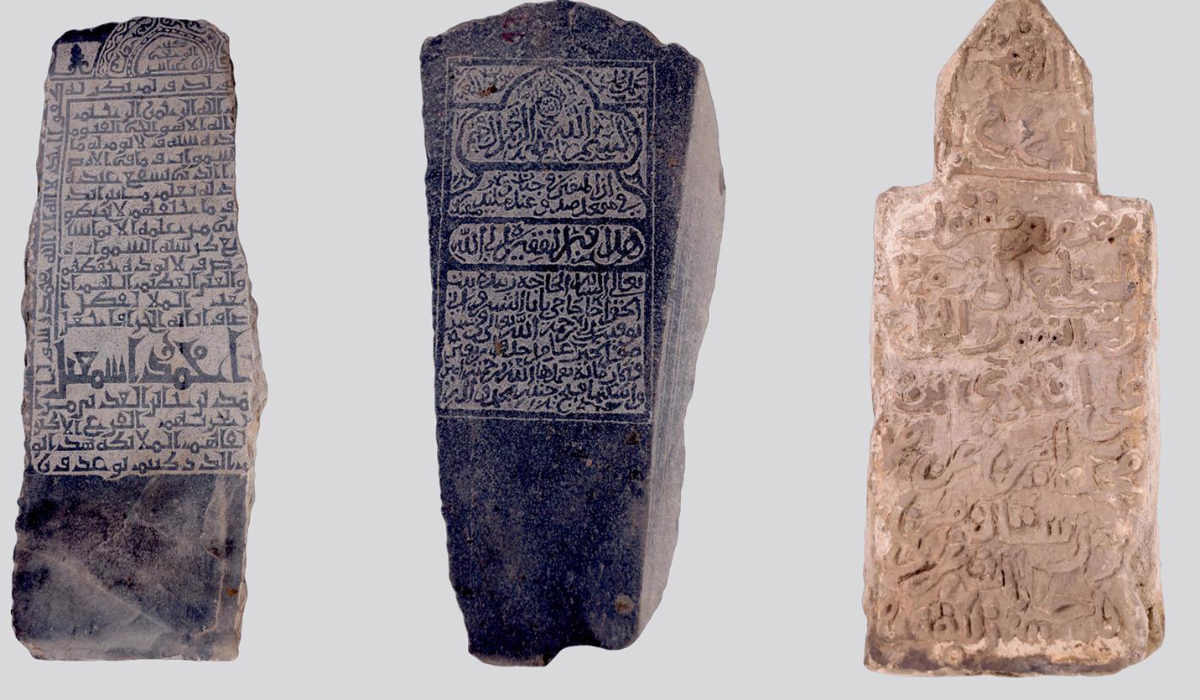
The Historic Jeddah Program, in collaboration with the Heritage Commission, ensures that archaeological resources are documented, registered, and preserved. (SPA)
“Beyond the initial reason I mentioned, which is the misalignment of the mosque with the Kaaba, there is another significant factor to consider. A pillar was discovered in the central layer dating back to the 19th century during excavation. As we delved deeper, reaching the foundational layers, we unearthed a peculiar discovery — the pillar’s base was not round but octagonal in shape. Further excavation revealed the octagonal base of the pillar, located approximately three to four meters below the surface. This evidence, coupled with additional findings, solidifies our belief in the historical significance of the mosque.”
Dania Baeisa, senior project engineer, told Arab News: “The discoveries that we found here in the Al-Shuna site were fragments of artifacts that tell a story about this site and how it was a center of global trade. The area of Al-Shuna is approximately 5,000 square meters.”
The announcement comes in light of the project’s efforts to revive Historic Jeddah, launched by Crown Prince Mohammed bin Salman, which aims to preserve national monuments, highlight historically significant sites, enhance the historic importance of Jeddah as a cultural center, and achieve the goals of Saudi Vision 2030 in preserving archaeological sites.
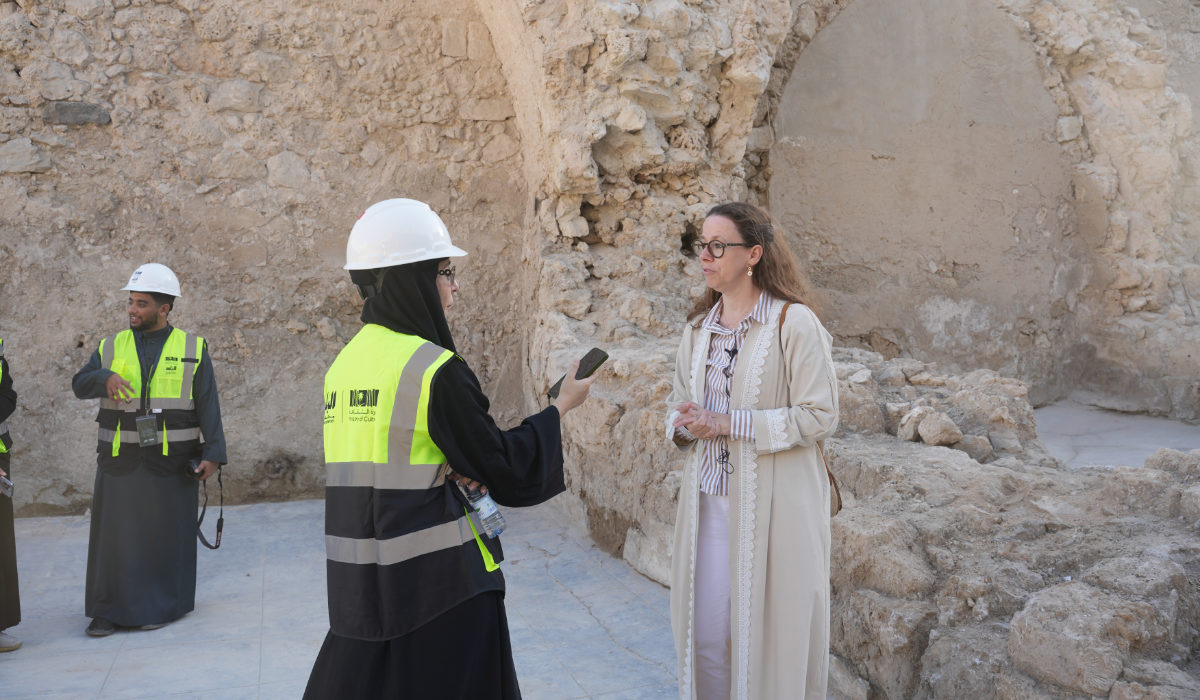
Dr. Laurence Hapiot, director of the archaeology department of the Historic Jeddah Program. (AN photo by Hashim Nadeem)
The Al-Shuna site, with a history reaching back to the 13th century, offers a unique glimpse into Jeddah’s past.
Dr. Laurence Hapiot, director of the archaeology department at the Historic Jeddah Program, spoke of the preservation of ancient remains amid the modern city. She said the site, with four meters of elevation, had revealed pottery, animal bones, shells, and even cannonballs, reflecting its diverse historical functions.
Regarding Al-Shuna, Hapiot told Arab News: “What you see here is the back of the tower and one entrance that we revealed by removing some modern concrete shops that were here. It’s amazing because despite the vibrant life in Jeddah and centuries of development, this area was preserved, with modern shops built all around, preserving these ancient historical remains. So, this is a very significant site, displaying four meters of elevation in the heart of a city that is so active.”

The Historic Jeddah Program, in collaboration with the Heritage Commission, ensures that archaeological resources are documented, registered, and preserved. (SPA)
Hapiot added: “On this site we discovered a lot of materials, primarily pottery chairs, but also some animal bones, shells, fragments of metal or glass, and various small finds. Interestingly, we also found cannonballs made of metal and one made of stone.
“It is exceptionally rare to find a building site with elevations in the heart of the city.”
The survey and excavation work, which was initiated in November 2020, has led to the discovery of over 11,000 ceramic artifacts, animal bone artifacts, shell materials, construction materials, and glass and metal artifacts. The total findings, weighing 531 kg, make a significant contribution to national archaeological discoveries.
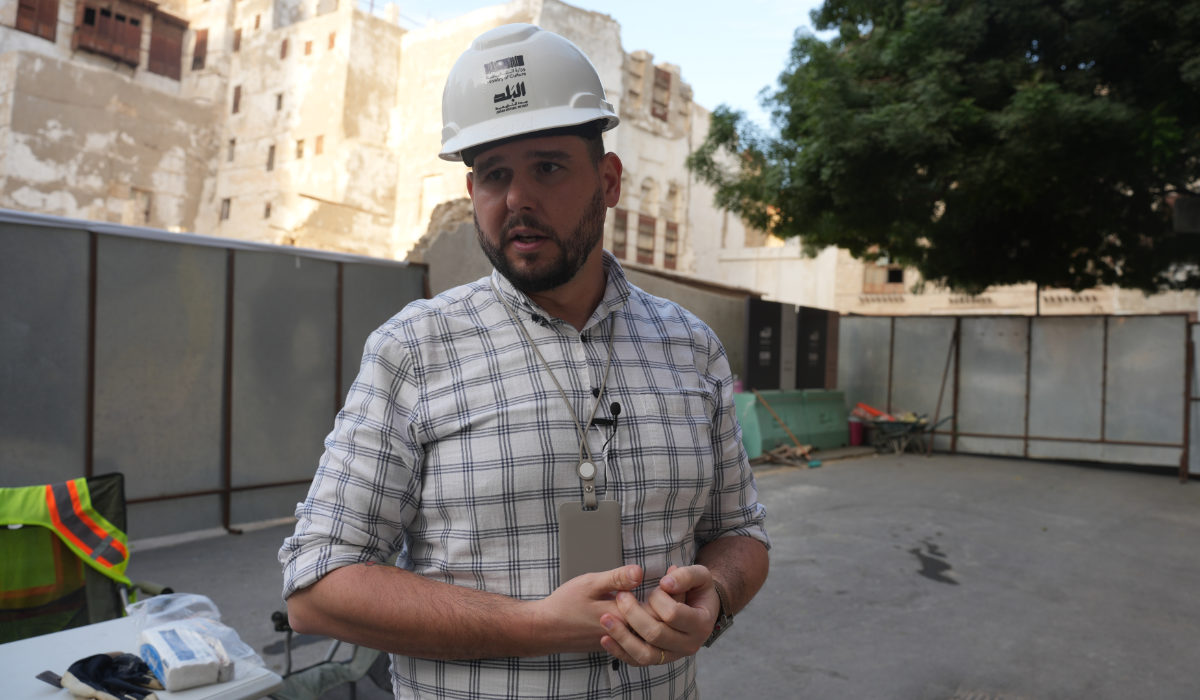
Otto Bagi, senior project manager of Uthman bin Affan Mosque. (AN photo by Hashim Nadeem)
Studies at the Uthman bin Affan Mosque revealed artifacts dating back to the first and second centuries of the Hijri calendar. The archaeological studies of ebony pieces highlight trade connections extending to Jeddah, including materials from Sri Lanka and porcelain from Jiangxi Province, China.
The Al-Shuna archaeological site traces its architectural remains back to at least the 13th century, with evidence dating back to the 10th century. Pottery materials from Europe, Japan, and China were discovered, providing insights into the trade connections of Jeddah during the 13th and 14th centuries.
Historic cemeteries in Jeddah have revealed tombstones made of limestone, granite, and marble, with inscriptions dating back to the second and third centuries of the Hijri calendar. These inscriptions, which include names, Qur’anic expressions, and verses, are currently undergoing further studies for accurate classification.
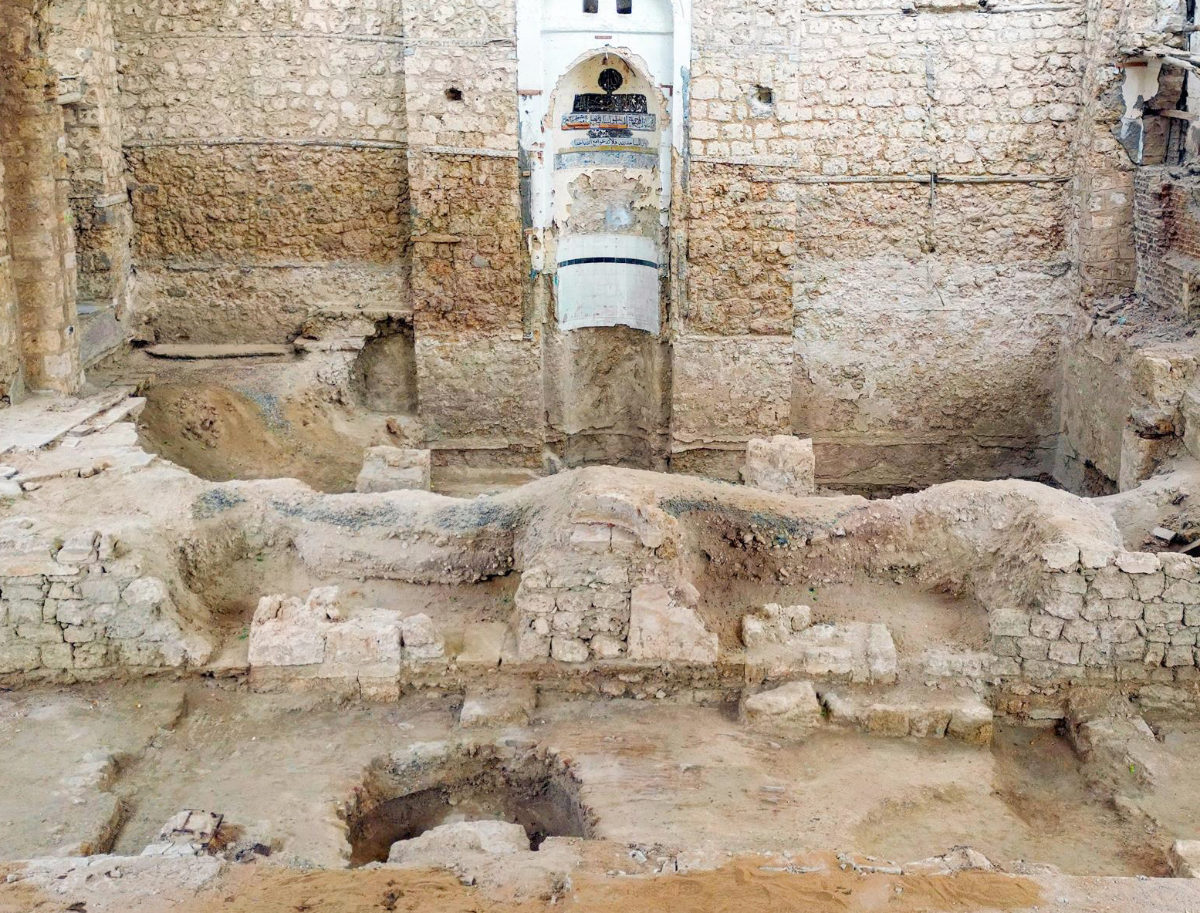
The Historic Jeddah Program, in collaboration with the Heritage Commission, ensures that archaeological resources are documented, registered, and preserved. (SPA)
During excavation works at the Al-Kidwa site (Bab Makkah), parts of the eastern trench were revealed, which likely dates back to the late 12th century of the Hijri calendar (late 18th century).
The archaeological studies of the four historic sites included excavations, analysis of radioactive carbon samples, soil analysis and geophysical and scientific studies of the discovered materials. More than 250 wooden samples from 52 archaeological buildings were transported to specialized international laboratories for identification and age determination.
They will also undergo further research in international archives that have collected more than 984 historical documents about Jeddah, including maps and drawings of historic Jeddah walls, Al-Shouna and other archaeological sites in Jeddah, which were scientifically reviewed and studied.
The Historic Jeddah Program, in collaboration with the Heritage Commission, ensures the documentation, registration, and preservation of archaeological materials. The National Antiquities Register and a scientific database safeguard these historic treasures, with documents and photos archived by specialized Saudi teams.



















